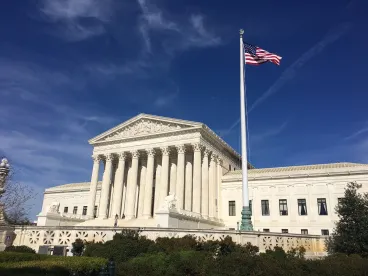The Supreme Court rarely weighs in on trademark law, and infringement litigation in particular. But on Wednesday, the US Supreme Court unanimously ruled that an infringer’s willfulness is not a prerequisite in order for an aggrieved trademark owner to obtain their profits in trademark infringement litigation. The Court’s decision in Romag Fasteners, Inc. v. Fossil, Inc. clarifies a split in the Circuit Courts and is a victory for brand owners.
The decision is not likely to result in wholesale changes in trademark litigation, however. While willfulness is not a firm requirement for disgorgement of profits, the Justices said the infringer’s mental state, or mens rea, remains an important consideration for potential forfeiture of profits. Accordingly, there must be more than innocent or unknowing infringement in order to obtain this type of award. Under the Lanham Act, courts may award the infringer’s profits to the claimant in trademark infringement cases. But the standard for levying such a penalty has varied across the country. The Second, Eighth, Ninth, Tenth and DC Circuits require a finding of willfulness before considering whether a profits award is appropriate. The First Circuit requires willful infringement only in cases in which the disputing parties are not direct competitors. The Third, Fourth, Fifth, Sixth, Seventh and Eleventh Circuits generally include willfulness as but one factor to consider in their overall analysis of whether to disgorge profits.
In this case, Romag Fasteners sued Fossil, a fashion accessories manufacturer, after a business arrangement between the two companies fell apart. Romag had a contract to supply magnetic fasteners for Fossil’s handbags. However, Romag’s contract manufacturer in China allegedly used counterfeit fasteners, not authorized Romag components. Romag alleged that Fossil “did nothing to guard against the known risk of counterfeiting” in its oversight.
A US District Court for the District of Connecticut jury initially awarded Romag $6.8 million in profits, but the Court struck that award due to a lack of willfulness on Fossil’s part. The Federal Circuit concurred that willfulness was a requirement for profits to be awarded.
The Supreme Court cleared up this confusion, ruling in favor of Romag: “A plaintiff in a trademark infringement suit is not required to show that a defendant willfully infringed the plaintiff’s trademark as a precondition to a profits award. The Lanham Act provision governing remedies for trademark violations, §1117(a), makes a showing of willfulness a precondition to a profits award in a suit under §1125(c) for trademark dilution, but §1125(a) has never required such a showing.”
With the Supreme Court saying an infringer’s mental state still is a “highly important” consideration, it seems unlikely that its decision in Romag v. Fossil will lead to a vastly lower bar in a court’s analysis of when profits are sought or disgorged. District Courts that did not previously require willfulness will likely continue to operate as they had. The Districts that did require willfulness will continue to consider an infringer’s mental state, although there will no longer be the prerequisite of establishing willfulness as a threshold for awarding profits.
It also is doubtful that this decision will lead to courts will lower the bar to allow the awarding of profits in purely unintentional infringement cases. In her concurrence, Justice Sonia Sotomayor warns against such an interpretation, writing, “A district court’s award of profits for innocent or good-faith trademark infringement would not be consonant with the ‘principles of equity’ referenced in §1117(a) and reflected in the cases the majority cites.”
But for brand owners, the ruling is good news, as it gives them additional leverage to enforce trademark rights in certain circumstances.




 />i
/>i
